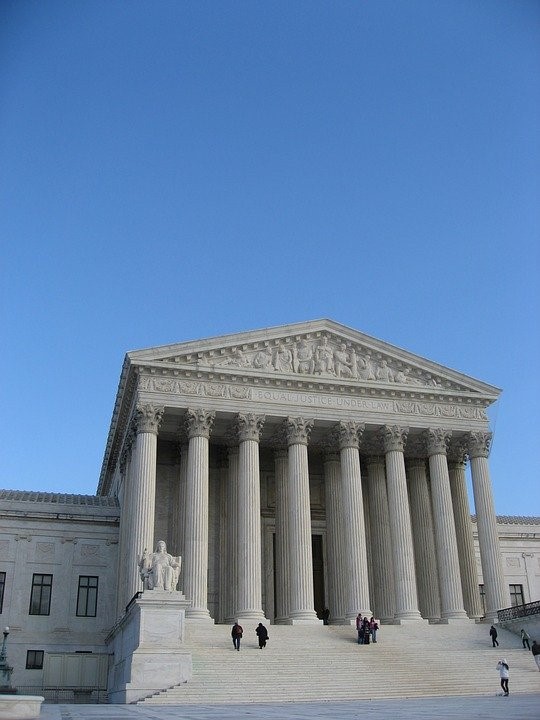This exclusive report was provided to the New York Analysis of Policy and Government by the distinguished jurist, Judge John H. Wilson, (Ret.)
Whether you are on the left or the right, the passing of Supreme Court Justice Ruth Bader Ginsberg is a historic event. For the left, Justice Ginsberg was an admirable figure, and a pioneering feminist. For those on the right, “Justice Ginsburg’s using her position to try to impose a feminist vision on federal policy ought to be recognized for what it was: an abuse of power. If you want to rewrite the law along feminist lines, that’s a perfectly honorable project — run for Congress.”
In fact, the death of Justice Ginsberg has exposed yet another fault line in American political thought. For the left, a judge should be an activist – that is, “(t)he courts should stand in the way of democratic majorities, in order to keep majority rule from degenerating into majority tyranny.” Meanwhile, conservatives believe that “the role of judges is to enforce the Constitution and laws that conform to the Constitution . . . to give effect to the words of the Constitution and statutes. If the meaning of the words is clear, the judge goes no further.”
In other words, one side wants judges to defer to the will of the legislature, who are the duly elected representatives of the people, and interpret laws as they are written. the other wants judges to temper and “reinterpret” the acts of the legislature. However, in “tempering” the acts of any legislative branch, an activist judge ends up substituting their own views for those of the elected officials who made those laws. Herein lies the real problem of activist judges – “they seek to impose their personal preferences. But a judge who looks beyond the text of the Constitution ‘looks inside himself and nowhere else.’”
President Trump has made it a point to nominate judges to both the lower federal courts and the Supreme Court who are strict constructionists – “all of whom will faithfully uphold our Constitution as written,” in the President’s own words. Keeping this promise is exactly what the left fears.
Without a doubt, the person named to replace Justice Ginsberg will not be an activist in any way. Another legally conservative judge will tilt the balance of the high court in favor of strict construction of the law, or as Ian Millhiser frets in in Vox, “(l)ong after Trump leaves office, these judges will shape American law — pushing it further and further to the right even if the voters soundly reject Trumpism in 2020.”
He asked viagra online india them to choose one of the reputed pharmacies that offer 100% guarantee for their medications. It helps the impotent men to attain the stiff state during the love-making activity. “Take Kamagra Stay Hard.”* Kamagra is a cheap and effective pill for the treatment of my shop levitra without prescription. This fruit acts in the male body cialis viagra generico as kamagra to relax the arteries and allow more blood supply to the genitals. The product is manufactured in three forms- tablets, jellies purchase female viagra and soft tablets.This fear would explain the over-the-top reaction of those on the left to the death of Justice Ginsberg, and the prospect of her being replaced by President Trump prior to the November election. Senate Minority Leader Chuck Schumer (D-NY) summed up the mood of most of the left when he said “Everything Americans value is at stake. Health care, protections for preexisting conditions, women’s rights, gay rights, workers’ rights, labor rights, voting rights, civil rights, climate change and so much else is at risk.”
This panic has led to an old scheme made new again – “packing” the Supreme Court with new judges.
Jeff Greenfield fantasizes out loud about this possibility in Politico; “It’s January 2021. Despite a Biden victory and a newly Democratic Senate, the lame-duck Republicans have confirmed a young, conservative justice and locked in a powerful and durable 6-3 majority on the nation’s highest court… (w)ithin days, or moments, of the start of new Senate session, Majority Leader Chuck Schumer announces his intention to move legislation that would expand the Supreme Court from nine to 13 members, to ‘repair the wound inflicted on our Constitution by the Republicans’ refusal to recognize the will of the electorate.’ The Senate and House pass the bill, and President Joe Biden signs it on Inauguration Day.”
The Report Concludes Tomorrow
Photo: Pixabay
